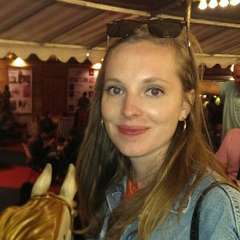
Session 2: Introduction to data visualisation with ggplot2
Please note: This training forms part 2 of a 2 session event with part 1 to be delivered 1.30pm – 4.30pm on Monday 29th June. Please do not register for this training unless you can attend both parts.
This Advanced Quantitative Methods Training event has been jointly organised between the WRDTP and the Scottish DTP, and is open to all ESRC funded and non-ESRC funded students across the partner universities. This event forms part of a 3 day series of events – students can attend events individually or attend all 3.
““Visualizations give you answers to questions you didn’t know you had””
Ben Shneiderman
Data visualization is a fundamental skill for quantitative social scientists, both for exploratory data analysis and communicating results effectively. This session gives an introduction to data visualization principles and application using the R package ggplot2. ggplot2 is an incredibly popular package for data visualization, used by academics, data journalists (such as BBC, New York Times and the Guardian) and citizen scientists around the world. ggplot2 allows users to combine simple elements to create sophisticated and illuminating visualizations to better understand and tell stories with data.
The course will cover the basic facilities of ggplot2 with hands-on-practical sessions. We will also demonstrate some of the more advanced capabilities of ggplot2, by introducing its mapping capabilities. By the end of this course participants will be able to create publication-ready graphics using gplot2’s core functionality, will be able to use ggplot2 as a tool for effective exploratory data analysis, and will have a foundation on which to learn ggplot’s more advanced functions.
Participants should have basic familiarity with the R statistical programming language.
Programme
Further details will be provided closer to the date of the session
The first session will introduce participants to the powerful ggplot2 plotting package and the underlying philosophy of the “grammar of graphics”.
The second session will build on this foundation to show additional features of ggplot2 including how to customise your plots and an introduction to mapping with ggplot2.
Both sessions will combine hands-on-instruction in how to use ggplot2 as well as conceptual discussion what makes effective data visualization of research data.
Workshop organiser/ leader
Additional speaker

Ben completed his PhD in 2017 at the University of Edinburgh, analysing conviction trends in Scotland between 1989 and 2011. Before joining the Understanding Inequalities team, Ben was a Research Associate at the Administrative Data Research Centre – Scotland, working on a number of projects in criminology and social work using linked administrative datasets.

All attendees should have a basic familiarity with R Studio.
There are 20 places available at this AQM workshop.
PLEASE NOTE: Students are responsible for arranging travel to and from this Advance Quantiative Methods Training session. The WRDTP cannot reimburse travel costs to this session.









